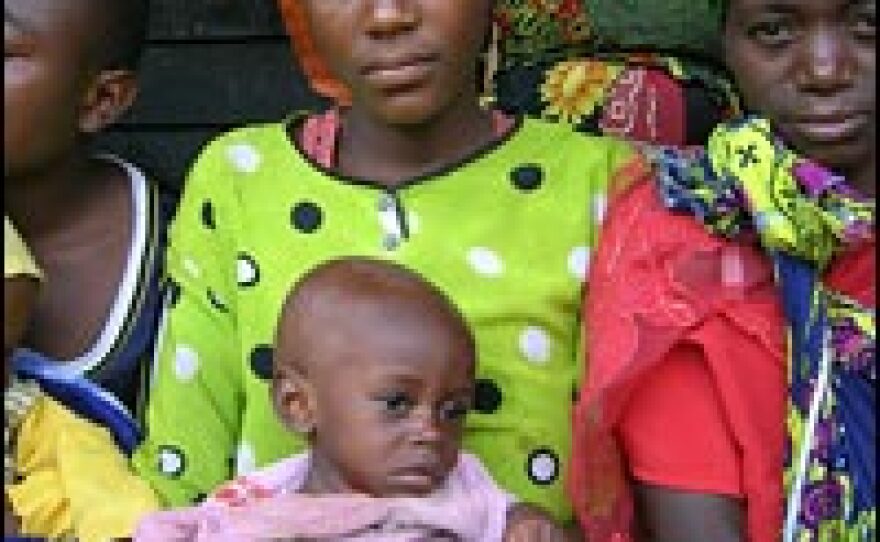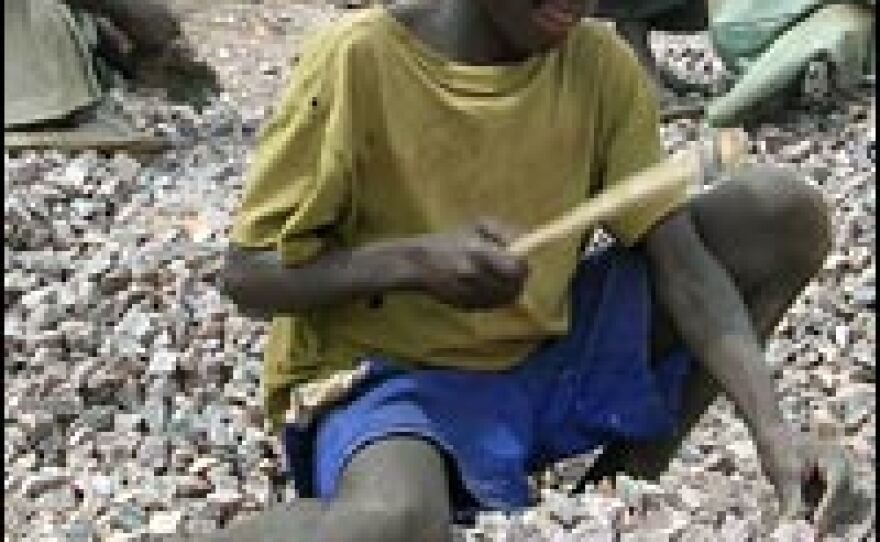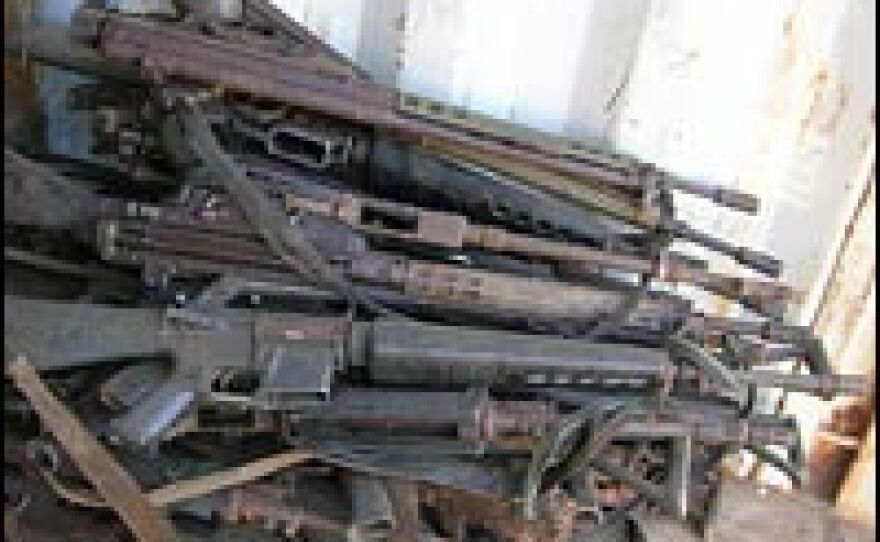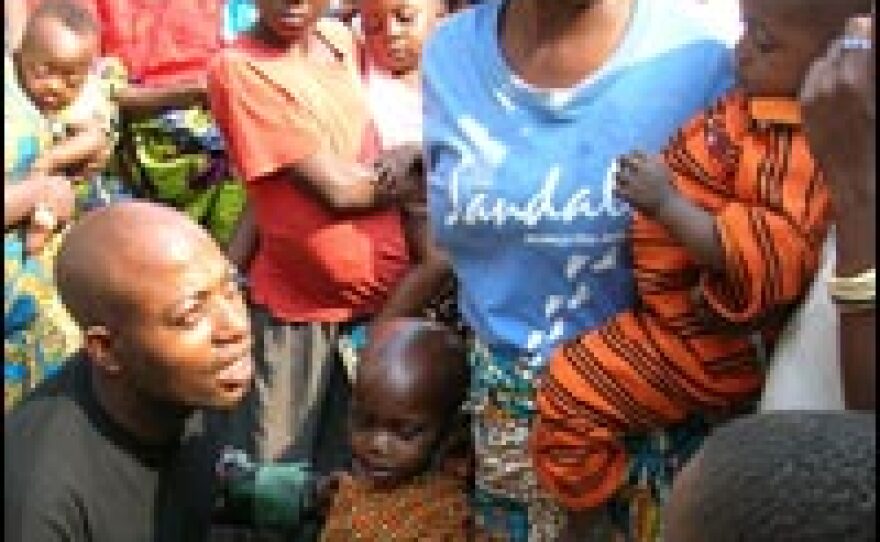


China, India and parts of Latin America have made progress recently in fighting poverty, disease and illiteracy, but progress in sub-Saharan Africa has been slow and, at times, nonexistent. Over the last two decades, the number of Africans living in extreme poverty has nearly doubled.
HIV continues to spread. Agricultural production on the continent has stagnated. Millions of African children still lack access to clean water, basic health care and primary education.
The continent risks being left behind even by the rest of the Third World.
War has been one of the biggest factors holding back social progress on the continent.
For the past eight years, one of the world's deadliest conflicts has swept back and forth across the east of the Democratic Republic of Congo. Fighting amongst various armies, rebel groups and militias has killed about 4 million people, mainly as a result of disease and starvation. And sporadic fighting continues.
Isaac Mwinde Mongolari, the lone doctor at a remote hospital near Lake Kivu, says villagers flee into the forest for weeks, sometimes months.
"When they're in the bush, they have no medical care," he says. "There's nothing to eat. They don't tend their fields and malnutrition increases."
Many of Mongolari's patients have been raped by soldiers. Some are dying of treatable conditions such as malaria, dysentery and malnutrition.
The forests in this lawless part of the Congo are home to numerous militias. The Interahamwe, the brutal Hutu rebels who orchestrated the 1994 genocide in Rwanda, have set up camp here. There's also a group called Cent Six, Congolese troops who defected from Mobutu Sese Seko's 106th Battalion more than a decade ago. Several Mai Mai militias, or local defense forces, operate in the area. And then there are the regular Congolese soldiers who extort money, food and even sex from the villagers.
Mongolari says there's no way to do any sustainable development here until there's peace. And there's been no peace or development in this part of the Congo for years. There are no paved roads. Bridges have washed out. People live in mud-and-thatch huts. Even the most basic infrastructure and governmental structures have collapsed.
While the Congo has been battered by war for years, many other parts of Africa have also suffered the ravages of military conflict. The Ivory Coast, which used to be the economic and social hub of West Africa, has been split in two since a 2002 coup attempt. Millions of people in the Darfur region of Sudan remain in windswept camps as a result of the uprising there.
Somalia disintegrated into bloody chaos more than 15 years ago, and still doesn't have a central government.
One of the longest-running conflicts in Africa is in northern Uganda. For the last two decades, Uganda has been attempting to wipe out the Lord's Resistance Army. In the process, hundreds of thousands of people have lost their homes. Thousands of Northern Ugandans have fled to the capital Kampala and now live in slum called the Acholi Quarter.
At a quarry on the edge of the settlement, Ajok Iren, 13, earns money to buy her family food by breaking rocks into gravel.
"My mother was blinded working here in the quarry," she says, "and now my family has no money."
That hostility in conflict zones across Africa drives people into slums. This can be seen in the shantytowns around Libreville in Sierra Leone, in the squalid tenements of Luanda, Angola, and the tattered squatter camps outside Khartoum where Southern Sudanese have lived for more than a generation.
A U.N. report earlier this year found that Africa's slums are growing more than twice as fast as slums anywhere else in the world. The vast majority of city dwellers in Africa -- 72 percent of urban residents -- live in neighborhoods without access to clean water, proper sanitation or durable housing.
Copyright 2022 NPR. To see more, visit https://www.npr.org. 9(MDAzMjM2NDYzMDEyMzc1Njk5NjAxNzY3OQ001))







